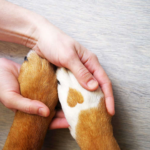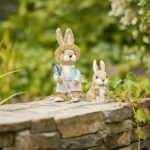
Finding the Perfect Family Pet: What to Consider
Where to buy a pet
You can adopt from a shelter, look online, visit a pet store, or connect with a breeder to find your perfect pet. Before you do so, ensure you check the background of the establishment or visit the site to see how the animals are kept. Here are some other things to keep in mind when looking:
Adopt from a shelter – An animal shelter or rescue organisation can be a wonderful place to find an animal who might have been rescued or given up by a previous owner. The animal might already be socialised and comfortable around humans. Talk to the staff or people fostering the animal to find out more about the animal’s personality so you have a clearer idea about your potential new pet.
Ads and online – You can also check newspaper ads or online ads to find a pet. If you do, do research to make sure the animal isn't being kept in poor conditions by irresponsible for-profit breeders or suppliers.
Pet store – A pet store could be a suitable place to find your new pet, but make sure it doesn't source from puppy mills, farms or similar establishments, as these are often associated with cruelty, poor conditions, and potential health issues
Breeders – You can contact breeders directly for pets like a bird, dog, or other types of animals. The Australian breeder landscape can lack transparency and regulation, so check the breeder's background and visit their premises. Review their breeding practices, the animal's health status, and its socialisation.
Choosing the right pet for your lifestyle
Cats and dogs tend to be the most popular pets, but you could consider other types of pets. Birds, rabbits, guinea pigs, fish, reptiles, and even ferrets and stick insects could make great pets. Here are some things to consider when choosing which type of pet:
Pet's needs – A dog, for example, needs a lot of companionship and could suffer if they're left alone most of the day, so a fish or guinea pig might be a better pet if you work all day. Some pets like birds and rabbits do best when there’s more than one of them. Dogs need daily walks, training, and socialisation in their early months, and some breeds of dogs need more grooming than others.
Space – Consider the size of your house and garden. If you have a tiny garden and poor fencing, a dog might not be the best choice. You could be better off with an indoor cat.
Cost – To give your pet a good quality of life, you need to be able to cover costs for food, caging, hutches, vet fees, worming, vaccinations, and so on. Do some research to work out the initial outlay as well as typical annual costs so you can better plan for pet ownership.
Other family members – Some pets might be better suited for young kids, and some pets may be too active for a mostly senior household. And if you already have a pet, will your new pet get along with them?
Considerations for each type of pet
Research prospective pet types and get to know their lifespans, costs, healthcare needs, and other needs before you settle on one. From birds and guinea pigs to dogs and cats, animals’ average life spans vary greatly. Cats do well with some solo time while dogs thrive living indoors and spending a lot of time with their human families. Cats like to hunt and could damage furniture and interiors. Birds like parrots can be noisy and require a lot of attention, stimulation, and contact. Some parrots can live up to 60 years, which could mean outliving their families and possibly having no one to care for them.
Getting your home ready for your new pet
Depending on what type of pet you're welcoming to your home, you might need to make some adjustments to help your pet feel right at home from day one:
Responsibility – Feeding, daily walks, cleaning and playing are some of the key responsibilities associated with your new pet. Assign responsibilities to household members and make sure you're clear about who'll be taking care of your new pet.
Purchase food and supplies – Make time to buy all the essential supplies before your pet arrives. These could include food, bowls, leash, collar, treats, toys, beds, cages, scratching posts, and other items. Check with the breeder or rescue centre to find out what your pet has been eating so you can help them make a smoother transition.
Vet – Find a reputable vet beforehand so you have someone to contact in an emergency.
Pet history – Make sure you have all the paperwork you need for a record of your pet's vaccination and treatment history for things like heartworm or fleas.
Proof your house – If you're getting a puppy or kitten, do a sweep of your house to make sure it's safe. Move cleaners and other chemicals to high shelves, secure electrical cords, and remove other potential hazards.
Pet spaces – Work out where you'll be placing beds, cages, cat litters, and water and food bowls. For dogs, decide where their potty place will be.
Friend for life
Pets can make wonderful additions to the family, providing unconditional love, companionship, and amusement. Find the right pet for your household and ensure they're well looked after, and you've got a loyal family member for life.
Getting ready to welcome your new pet into your home? You can find all the supplies you need for your new pet at Marketplace Gungahlin.

